Visit to get our entire library of TED Talks, transcripts, translations, personalized talk recommendations and more.
Every environment on the planet — from forested mountaintops to scorching deserts and even the human gut — has a microbiome that keeps it healthy and balanced. Ecologist Steven Allison explores how these extraordinarily adaptable, diverse collections of microorganisms could help solve big global problems like climate change and food insecurity — and makes the case for getting to know Earth’s original inhabitants in fascinating ways.
The TED Talks channel features the best talks and performances from the TED Conference, where the world’s leading thinkers and doers give the talk of their lives in 18 minutes (or less). Look for talks on Technology, Entertainment and Design — plus science, business, global issues, the arts and more. You’re welcome to link to or embed these videos, forward them to others and share these ideas with people you know.
Become a TED Member:
Follow TED on Twitter:
Like TED on Facebook:
Subscribe to our channel:
TED’s videos may be used for non-commercial purposes under a Creative Commons License, Attribution–Non Commercial–No Derivatives (or the CC BY – NC – ND 4.0 International) and in accordance with our TED Talks Usage Policy (). For more information on using TED for commercial purposes (e.g. employee learning, in a film or online course), please submit a Media Request at
Transcriber:
Microbes are everywhere.
They live in the air, the ocean,
the soil and on our bodies, lots of them.
But before you reach
for the hand sanitizer,
take a look at these beautiful
bacterial mats
in Yellowstone’s Grand Prismatic Spring.
They’re absolutely amazing
because they’ve somehow figured out
how to grow happily
at near boiling temperatures.
Ever since life on Earth began,
probably in a place like this,
microbes have kept planetary
chemical cycles in balance.
Today, humans are altering
that balance and changing the climate
by emitting greenhouse gases
into the atmosphere.
But microbes might be able
to help us with our climate problem.
After all, microbes are Earth’s original
and most adaptable inhabitants.
Now, I know that not everyone
is so enamored with microbes.
My biology students tell me
that they usually think of “pathogen”
when they hear the word “microbe”
and I know we’re in the middle
of a global viral pandemic.
But you should keep in mind that far less
than one percent of microbial diversity
is actually pathogenic to humans.
In fact, most of the microbes
we encounter are beneficial.
There are trillions
of bacteria, fungi and viruses
living in and on us right now,
more of them than human cells in the body.
They help us digest our food,
protect us from disease
and maybe even choose our mates.
Microbiologists call this assemblage
of tiny interlopers the human microbiome.
We now know that there are microbiomes
in basically every environment.
In the same way that they help
our human bodies stay healthy,
microbiomes in water, soil and air
are critical for planetary health.
For example, cyanobacteria in the ocean
carry out photosynthesis
and provide a large fraction
of the planet’s breathable oxygen.
Even though they’re tiny,
their green color can be seen
from outer space with satellites.
They may be harder to see,
but microbiomes in the soil
are just as important
as the human or ocean microbiome.
I think about soil
as a skin for the planet
that provides nutrients
to sustain crops and other plants.
As an ecologist and climate scientist,
I’ve been studying the microbes
that live in soil for 20 years now.
Just like we’ve seen
with the human microbiome,
cutting-edge techniques
in molecular biology,
especially DNA sequencing,
show that soil microbiomes
are extremely diverse
in their genes and life cycles.
Scientists are starting
to figure out how we can harness
the diversity of these
often invisible organisms
to solve global problems
like climate change and food insecurity.
Take agricultural crops, for example.
With climate change causing
more frequent heat waves and droughts,
crop plants may become stressed,
reducing yields
and threatening food security.
But microbes can help.
There are symbiotic fungi
called mycorrhiza
that grow out from plant roots
and into the soil
where they collect water and nutrients.
Then the plant and its
symbiotic fungus make a trade.
The fungus sends water and nutrients
into the plant roots
and the plant pays back the fungus
with sugars from photosynthesis.
To reduce stress on plants
from climate change,
farmers can inoculate the soil
with these beneficial fungi.
Land managers are also starting
to use the same approach
to help native plants
recolonize degraded soil
during habitat restoration.
So the next time you support
an environmental cause,
maybe through a nonprofit donation
or volunteer work,
remember, soil microbes
need conservation too.
The planet also relies on soil microbiomes
for other essential services.
Have you ever thought
about what happens to living things
like these leaves, mosses
and mushrooms when they die?
I’m not talking
about an existential crisis.
I’m talking about microbial decomposition.
Think about it like a type
of biological recycling
practiced by very diligent microbes.
They take dead bodies
and turn them into useful nutrients.
Without this essential service,
life on Earth would grind to a halt
because dead stuff would pile up,
depriving the next generation
of life forms of the raw materials
needed for growth.
Hundreds of researchers
funded by the US Department of Energy
are even trying to figure out
how to co-opt microbial decomposition
to produce sustainable biofuels
from wood, grasses
and other plant materials.
Fuels derived from plants and microbes
are part of the climate solution
because they don’t rely
on fossil carbon sources
like coal and oil.
At the same time, ecologists like me
are very concerned
about how climate change might affect
microbial recycling in the environment.
A warming climate
might speed up the process
and release more greenhouse gases
into the atmosphere.
A drier climate
might slow down the microbes
and leave plants starved
for essential nutrients.
Fortunately, there is reason for hope.
Microbes are super adaptable
because they can evolve very quickly.
For example, you may have heard
of pathogenic bacteria like staph
evolving antibiotic resistance.
Of course, that’s bad for us.
But the same evolutionary process
could also help microbes
adapt to climate change, which is good.
After all, microbes evolved long ago
to survive extreme conditions
like the hot springs of Yellowstone.
Just like our human cells,
each microbial cell contains a genome.
And just like our genomes,
microbial genomes
contain genes or DNA sequences
with instructions for growth and survival.
My colleagues and I have identified genes
that allow bacteria and fungi
to survive drought
and decompose dead plant material.
We’re currently doing experiments
to see how fast these genes evolve
and what kinds of genetic changes
make bacteria and fungi
more resistant to drought.
Some of our prior research
shows that microbes have the potential
to deal with climate change.
Microbiomes and the services they provide
could cope not just by evolving,
but also by shifting around
the dominant species of microbes.
Microbiomes are so diverse
that even if some of the species
die out with climate change,
others might survive and take their place,
allowing nature’s recycling to continue.
To test this idea, my colleagues and I
designed special cages
to contain microbiomes
from different habitats
in Southern California.
We sampled microbiomes from places
ranging from forested mountaintops
to hot deserts.
Each cage contained a microbiome
from one of these places
along with sterilized dead grass
for the microbes to use as a food source.
We then put the cages back
into the different habitats
so that the microbiomes experienced
pretty dramatic changes in climate.
We expected that the microbes
from the cooler places
would die out when we moved them
to the warm places like the hot desert,
and that they would lose their ability
to consume and recycle the nutrients
in the dead grass material.
But when we looked at the results,
I was really shocked.
The microbiomes were almost unfazed
by this massive climate difference.
There were some changes
in the dominant species,
but mountaintop microbes
decomposed dead grass just as well
as desert microbiomes
in the hot, dry climate.
This result tells us the microbiomes
have the ability to evolve
and shift to deal with really
dramatic climate changes.
Another way that soil microbiomes
can be part of the climate change solution
is by building healthy soil.
Many soil bacteria and fungi
ooze out sticky chemicals
to glue themselves onto soil surfaces.
The glue and the microbes
form these biofilms
that hold soil particles together.
This helps the soil resist erosion
and hold more water
that’s available for plants.
Microbes and their biofilms also play
a big role in soil carbon sequestration.
Many forms of carbon from plants,
like sugars, don’t last long in the soil
because they’re food for many organisms,
including the microbes.
But microbodies and biofilms
are made up of complex chemicals.
For example, many microbes
build cell walls for protection,
so the wall material has to be resistant
to biochemical attack.
When the microbes die, their corpses,
especially those cell walls,
can stick around for a really long time,
maybe even thousands of years.
In this way, soil acts a lot like
a bank vault for carbon.
More carbon in the bank
means healthier soil
and less greenhouse gas
buildup in the atmosphere.
Microbes are sort of
like the Federal Reserve.
They can take cash off the street
in the form of these plant sugars
and lock it away in a chemical vault
for long-term storage.
With the science of climate change
becoming more and more obvious every day,
we need to figure out
how to adapt, for sure.
Some scary outcomes,
like emerging microbial diseases,
are definitely something
we need to plan for.
But microbes can be a part
of the climate solution
if we figure out how to leverage
all that microbiome diversity.
To be honest, though, making sense
out of complex microbiomes
is still a big scientific challenge.
Their complexity
is both a blessing and a curse.
We’re only beginning to understand
all the strange and wonderful
microbial lifestyles
that have been evolving
since the origins of life on Earth.
This digital artwork
called “Microbes Reimagined”
does a great job of capturing
that sense of mystery.
But one thing we do know for sure
is that microbes are not just pathogens.
Our lives literally depend on them.
So next time you take a breath outside,
imagine all those
oxygen-spewing cyanobacteria
floating around in the ocean,
and when the time comes
and you draw in
that last and final breath,
take comfort in knowing
that soil microbes will be there
to turn your body into useful nutrients.
Even as we enjoy
these benefits of microbiomes,
climate change remains a potentially
existential threat to our well-being.
But dangerous climate change
is not inevitable, at least not yet.
With the right cutting-edge research,
diverse microbiomes
could become a big part of the solution
to our climate problem.
Thank you.

 Science & Technology4 years ago
Science & Technology4 years ago
 Wired5 years ago
Wired5 years ago
 CNET4 years ago
CNET4 years ago
 Wired5 years ago
Wired5 years ago
 Wired5 years ago
Wired5 years ago
 Wired5 years ago
Wired5 years ago
 People & Blogs2 years ago
People & Blogs2 years ago
 Wired5 years ago
Wired5 years ago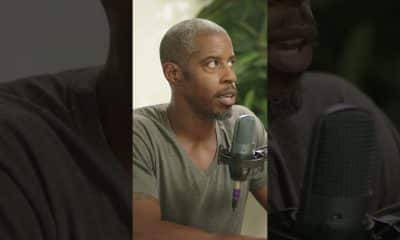

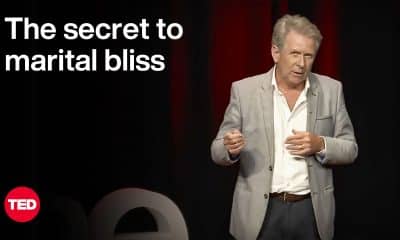

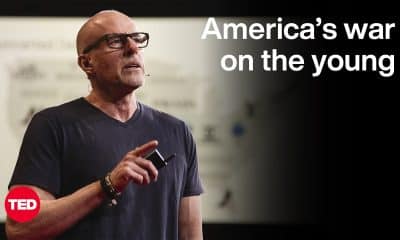





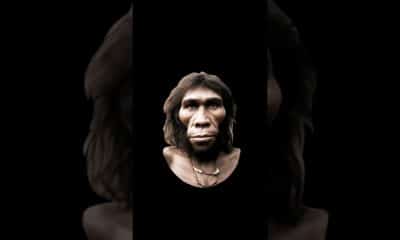


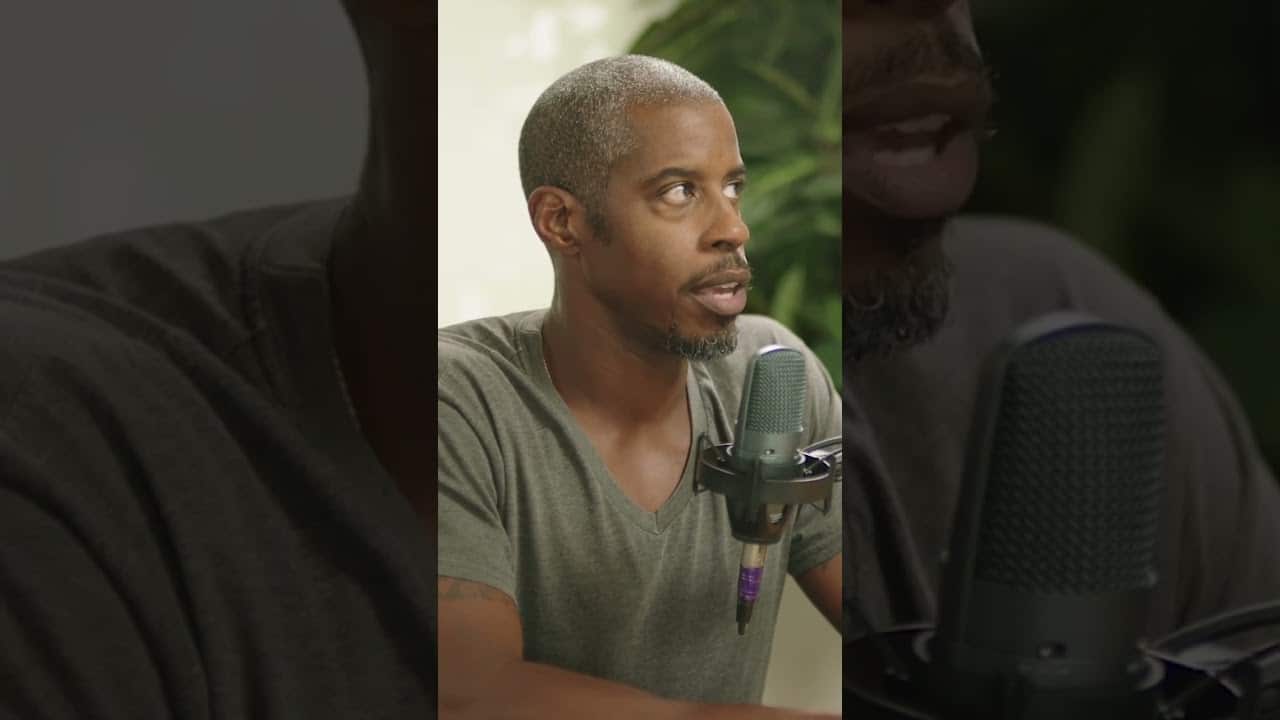





TrickyRicky
May 3, 2021 at 4:21 pm
Why pronounce fungus with a G but fungi with a J!? It’s inconsistent they are fun-(Guys)!
Sinster
May 3, 2021 at 4:26 pm
Climate change is a religion.
Facts: the climate is always changing.
If anything im down with not poluting and poisoning ourselves.. but to act like a planet thats billions of years old is somehow effected by our 70 year old industrial revolution is assinne.
James Campbell
May 3, 2021 at 4:38 pm
Gee really?!?can we say Adam,Eve,Lilith,the problem we have are dimwhitted white teachers,where did the pandemic legacy underway come from!?!the over use of antibiotics and steroids in the agricultural industry tailing ponds.
James Campbell
May 3, 2021 at 4:40 pm
What you need is Expanded Med4all single payer healthcare and recognize GMOs are immunology system disruptor’s.Why lndia is just ahead of the US and Brazil in death’s….
Small Business Hacks
May 3, 2021 at 4:52 pm
“Original” comes from the Lexicon of originate. Technically we are all earths original inhabitants. But anyway, I am just making this boring comment to gain some publicity for my channel and probably by now you despise me. But at least I am honest. Thanks and have a good week!
Vida no Leste Europeu
May 3, 2021 at 4:55 pm
Haha. Thanks for being frank. You have my subscription
Agent76
May 3, 2021 at 4:58 pm
Weather is not climate change! Look up the definition!
Sannidor
May 3, 2021 at 5:04 pm
Well said. Sadly, “scientism” is new woke religion with cultists not respecting scientific method.
Ali
May 3, 2021 at 6:29 pm
@Sannidor It’s like you failed science at school and you are still salty about it.
Sannidor
May 3, 2021 at 8:04 pm
@Ali Most of what you think of as “science” has nothing to do with it. You’ve been taught circular logic and obedience, not creativity or independence.
Daniel Tapia
May 4, 2021 at 2:10 am
@Sannidor You are so wrong that you don’t even understand why you’re wrong. Science is self correcting and holds no bias towards any viewpoint. It just cares about objective reality. Nothing to do with obedience (which ironically is what religion and nationalism teaches)
GuitarZombie
May 3, 2021 at 5:01 pm
far less than 1% are in a “global pandemic”
Sannidor
May 3, 2021 at 5:02 pm
This is nonsense. We can’t combat “climate change”, we never caused it and have no ways of changing it.
All we can do is adapt and not waste time on woke hoaxes.
Malhar Acharya science
May 3, 2021 at 5:54 pm
In lockdown the sky became cleer in India
Sannidor
May 3, 2021 at 8:10 pm
@Malhar Acharya science India is a meme culture, they poo in their streets and their cast system prevents them from progressing into modern society. So there’s anecdotal decrease in pollution – irrelevant if you still demonize CO2.
Gorgeous George
May 4, 2021 at 1:57 am
Milankovitch cycles and axial precession…. Don’t let political science replace factual, relevant, historical data…
Rahul Patil
May 4, 2021 at 11:45 am
Do you even know what’s causing climate change? Aren’t humans responsible for it? And why should we suffer, let the biodiversity suffer, and learn to adapt if we can correct what we did wrong and improve?
Gorgeous George
May 4, 2021 at 11:52 am
@Rahul Patil yes… Actually I do… Axial precession
Sannidor
May 4, 2021 at 1:13 pm
@Rahul Patil The “change” is only perceived as such because our data is very limited and there’s already plenty of evidence that collection of this data is selective and serves the agenda. However, even the official measurements show our realm went through multiple, mass scale climate change. Lying campaigns about humans being responsible for something they can’t control are targeted at weak minded individuals who need their ego boosted and want to feel helpful, when actually often making things worse. Countless cases of attempts at “saving bio-diversity” caused overpoplulation of invasive species which we have to exterminate later.
Neelu Mahendra
May 3, 2021 at 5:25 pm
change the habbits of people first, we cant go on doing the damage to earth
whisperingsage
May 4, 2021 at 12:14 am
Individual habits are not the problem when 100 companies produce 70% of carbon emissions
Revilokab
May 4, 2021 at 1:19 am
Individual habits are most likely steering these 100 companies
Cotton Kitty
May 4, 2021 at 9:30 am
we have already ruined everything imo
Rose Pursley
May 3, 2021 at 5:27 pm
Who’s truth is this? Not God’s.
Bernardo Fitzpatrick
May 3, 2021 at 6:45 pm
Which god? Jewish, Islamic or American Christian god , 1000s of Hindu Gods, Mormon god etc.etc?
Cybr Friends
May 3, 2021 at 5:41 pm
God Bless President Joe Biden, God Bless America and its Democracy!
Finally leadership we can have hope and believe in!
Finally a leader who cares about the environment and America’s natural resources.
Gorgeous George
May 4, 2021 at 1:55 am
Are you joking? You must be Chinese
Ashutosh Srivastava
May 3, 2021 at 6:01 pm
Humans bad.
-Humans
walperstyle
May 3, 2021 at 7:52 pm
The people that complain also produce next to nothing important to create change. Loud noises and activism is kinda bullshit. Anyone can complain. It takes intelligence to build a better world.
Salahudiyn
May 3, 2021 at 11:06 pm
It’s mainly Europeans
Keeano Agustiadi
May 5, 2021 at 5:15 pm
@Salahudiyn try watching Zac Efron’s “Down to Earth” in Netflix
Mike Maloney
May 3, 2021 at 6:11 pm
And life just gets stupider
James Kulevich
May 3, 2021 at 6:39 pm
Climate change is a natural phenomenon on earth. There were times before when there wasn’t any ice on earth. The CO2 level is lower than ever. Don’t believe they’re bullsh*t.
Beth Jannet
May 3, 2021 at 6:50 pm
Could you please link your sources?
James Kulevich
May 3, 2021 at 6:40 pm
Fires in California were worse 100 years ago. 100 years before that, they were even worse. Study & investigate. Wake up…
James Kulevich
May 3, 2021 at 6:42 pm
This speaker is a wishywashy passive aggressive weak fool.
Smith Will
May 3, 2021 at 6:54 pm
Xprize.
Dibald Gyfm
May 3, 2021 at 7:16 pm
It will be flooding, storms and malfunction of society, water, power, transport, which willl be the big problem when the climate change smashes on coasts (like in Bangla Desh and China) and the Atlantic coastline of USA becomes destroyed by storms.
Draw Red Lion
May 3, 2021 at 7:35 pm
Channel dedicated to drawing…
“Drawing is my passion, not a gift”
Christopher Calder
May 3, 2021 at 7:36 pm
Climate change is a religious cult, not a real world problem that we have any control over. Joe Biden and the entire Democratic Party are delusional and irrational. They cannot control and protect our borders, end crime in the streets, or end their lust of foreign wars and gunboat diplomacy, so how are they going to control the weather? The very idea is ridiculous. Hurricanes are not caused by cow farts and Volkswagens. You can make yourself sick eating mountains of tofu and throw money down a storm drain building windmills and solar schemes that don’t work, but all of that stupidity will have no effect on the weather. Carbon dioxide, methane, and nitrous oxide combined make up less than 0.05% of our atmosphere combined. The idea than any gas can trap heat and be used as insulation is absurd, and suggesting that these tiny trace gases control Earth’s temperature like a thermostat is hallucinatory, All the real unaltered evidence tell us that the tiny trace gases have no effect on temperature one way or the other. They do not make our world warmer or colder. Ted is run by fools who have fallen for Al Gore’s religion that puts Mother Nature on the Cross instead of Jesus and makes carbon our Original Sin. These hairless monkeys love their doomsday religions, and the Church of Climate Change is just one of many hysterical cults that have caused havoc and produced no positive benefits whatsoever. You are just jumping up and down, making noise, and throwing feces at spectators if you fall for this circus of absurdity.
King Gordan
May 3, 2021 at 10:46 pm
How can climate change be a real natural thing from the earth if man can control the weather since we’ve mastered the elements
Leo Navarro
May 3, 2021 at 11:15 pm
Nice video!! Very engaging from beginning to end. Nevertheless, businesses and investment are the easiest way to make money irrespective of which party makes it to the oval office.
Santiago Joaquín
May 3, 2021 at 11:55 pm
Nothing is impossible crypto investments has changed life and it is still changing more
Felicia Magnus
May 3, 2021 at 11:55 pm
Poor people think of what they can buy with their money, rich people think what they can Invest in with their money
Lorenzo John
May 3, 2021 at 11:55 pm
James Marcus daily signals are top notch and one of the best in crypto when it comes to signal provider… bitcoin to the moon
Amelia Elijah Ava
May 3, 2021 at 11:58 pm
Yes I can believe that, I got victory with him. I was so sad after receiving the first payment knowing I invested so low with fear
William Axel
May 3, 2021 at 11:59 pm
I was able to withdraw $37k profit within a space of 4 weeks trading with Mr Amannat James
michael beardmore
May 4, 2021 at 8:37 am
its a bugs life.””
ali Gamer
May 4, 2021 at 5:19 pm
2010 : climate change is scam
2020: climate change is the biggest lie
2050 : Oh climate change is real
Threw The Looking Glass
May 4, 2021 at 6:43 pm
take me to .. another place.. or time
Ron Simmons
May 4, 2021 at 7:12 pm
Climate is always changing isn’t it? Are you concerned by AGW?
english coffee
May 5, 2021 at 4:27 am
You’re just like Dimas Beck 😊
John Handforth
May 5, 2021 at 6:35 am
I studied six years in Air Weather Service. I worked in Meteorology. The weather almost never stays the same. It changes quite often Before CLIMATE CHANGE, it was called WEATHER. We should stop AOC rich and study the weather.
Martha Zimmerman
May 9, 2021 at 5:08 pm
Hopeful, educational, speaks to us lay peeps